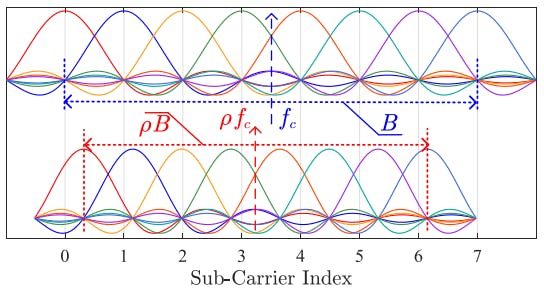Table of Links
Abstract and 1. Introduction
-
A free and fair economy: definition, existence and uniqueness
2.1 A free economy
2.2 A free and fair economy
-
Equilibrium existence in a free and fair economy
3.1 A free and fair economy as a strategic form game
3.2 Existence of an equilibrium
-
Equilibrium efficiency in a free and fair economy
-
A free economy with social justice and inclusion
5.1 Equilibrium existence and efficiency in a free economy with social justice
5.2 Choosing a reference point to achieve equilibrium efficiency
-
Some applications
6.1 Teamwork: surplus distribution in a firm
6.2 Contagion and self-enforcing lockdown in a networked economy
6.3 Bias in academic publishing
6.4 Exchange economies
-
Contributions to the closely related literature
-
Conclusion and References
Appendix
7 Contributions to the closely related literature
In this paper, we propose a model of a free and fair economy, defining a new class of noncooperative games, and we apply it to a variety of economic environments. We prove that four elementary principles of distributive justice, of long tradition in economic theory, guarantee the existence of a pure strategy Nash equilibrium in finite games. In addition, we show that when an economy violates these principles, a pure strategy equilibrium may not exist, resulting in instability in agents’ actions and in income volatility. We extend this model to incorporate social justice and inclusion. In this more general model, we also prove several results on equilibrium existence and efficiency.
Our work contributes to several literatures. It is related to studies of group incentives in multi-agent problems under certainty. Holmstrom [1982] explores the effects of moral hazard in individual incentives and efficiency in organizations with and without uncertainty. Like Holmstrom [1982], we consider that in a free economy, any agent has the freedom to choose any action (or input) from his or her set of strategies, and the combination of actions from agents generates a measurable output. However, unlike Holmstrom [1982], there is no uncertainty in the supply of inputs, and we assume that our allocation scheme follows basic principles of distributive justice. It follows that our scope, analysis and applications are very different. Moreover, Holmstrom [1982] finds an impossibility result in his setup (see, Holmstrom [1982, Theorem 1, p. 326]), but our analysis implies that this result does not extend under fair principles in a framework with finite action sets. Moreover, we show that any free and fair economy which is strictly monotonic admits a unique equilibrium, and this equilibrium is optimal and Pareto-efficient (Theorem 2). Our findings therefore underscore the role of justice in shaping individual incentives, stabilizing contracts among private agents, and enhancing welfare.
By incorporating normative principles into non-cooperative game theory, we have introduced a new class of finite strategic form games that always admit a Nash equilibrium in pure strategies. We view this paper as contributing to the small but growing literature that seeks to uncover conditions under which a pure strategy Nash equilibrium exists in a non-cooperative game with simultaneous moves. Nash [1951] shows a very prolific result on the existence of equilibrium points in a finite non-cooperative games. Nash [1951] also shows that there always exists at least one pure strategy equilibrium in finite symmetric games. However, Nash [1951] was silent about the existence of pure strategy equilibrium in either finite or infinite non-symmetric strategic form games. Subsequent research has searched for sufficient and necessary conditions for the existence of pure strategy Nash equilibrium in different structure of strategic form games. Early contributions in this respect include, among others, Debreu [1952], Glicksberg [1952], Gale [1953], Schmeidler [1973], Mas-Colell [1984], Khan and Sun [1995], Athey [2001] in continuous games; Dasgupta and Maskin [1986a], Dasgupta and Maskin [1986b], Reny [1999], Carbonell-Nicolau [2011], Reny [2016], Nessah and Tian [2016] in discontinuous economic games; Monderer and Shapley [1996] in potential games; and Ziad [1999] in fixed-sum games. In these studies, scholars use different concepts of continuity, convexity and appropriate fixed point results along with some restrictions on utility functions to prove the existence of a pure strategy Nash equilibrium. Other contributions that guarantee the existence of equilibrium in pure strategies for finite games include, among others, Rosenthal [1973], Mallick [2011], Carmona and Podczeck [2020], and the references listed therein. We follow a different approach from this literature. Unlike our paper, this literature has not approached the issue of equilibrium existence in a non-cooperative game from a normative angle. We also apply our theory to different economic environments, including applications surplus distribution in a firm, exchange economies, self-enforcing lockdown in networked economies facing contagion, and bias in academic publishing.
Finally, in addition to the previous point, our work can also be viewed as contributing to the Nash Program [Nash, 1953], which bridges non-cooperative and cooperative game theory. However, we significantly depart from the main approach taken in this literature so far. This approach has generally sought to define a non-cooperative game whose solution coincides with the outcomes of a cooperative solution concept; see Serrano [2020] for a recent survey on this literature. Our approach, on the contrary, follows the opposite direction. It asks if equilibrium can be found in a strategic form game in which payoffs obey natural axioms inspired by cooperative game theory.
:::info
Authors:
(1) Ghislain H. Demeze-Jouatsa, Center for Mathematical Economics, University of Bielefeld (demeze [email protected]);
(2) Roland Pongou, Department of Economics, University of Ottawa ([email protected]);
(3) Jean-Baptiste Tondji, Department of Economics and Finance, The University of Texas Rio Grande Valley ([email protected]).
:::
:::info
This paper is available on arxiv under CC BY 4.0 DEED license.
:::









